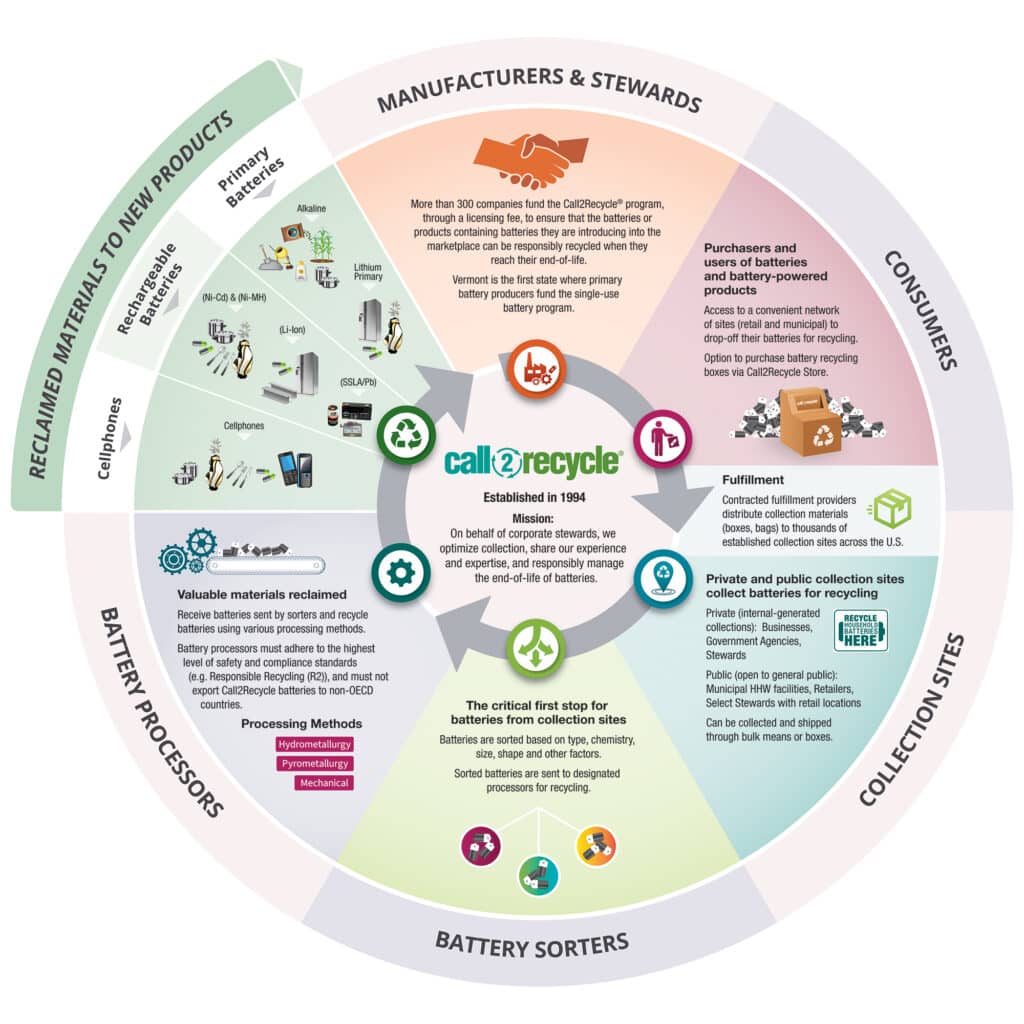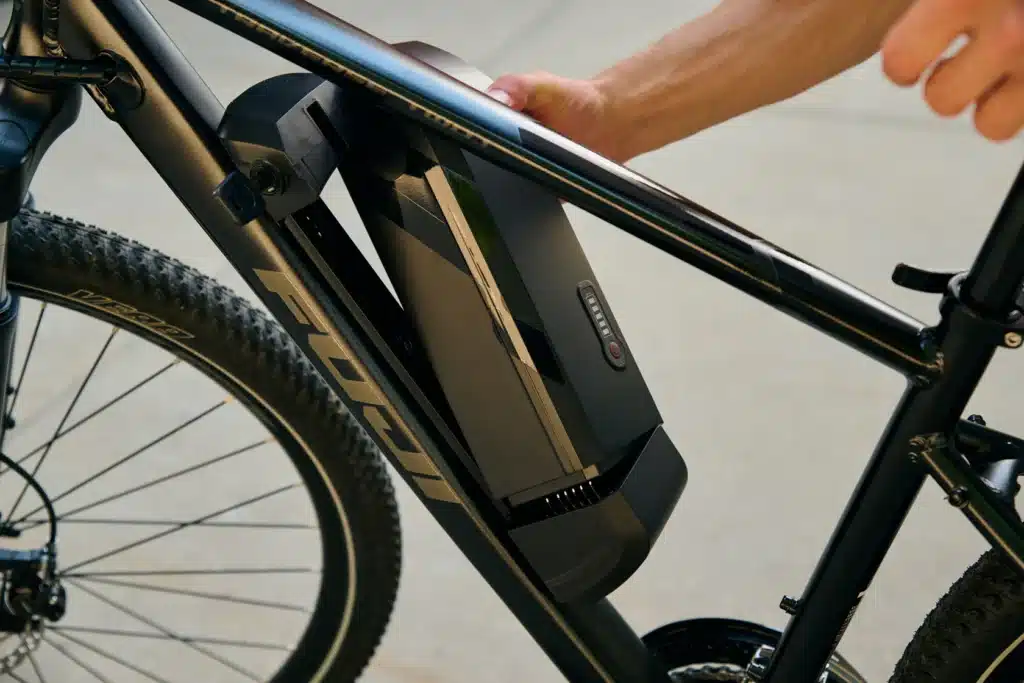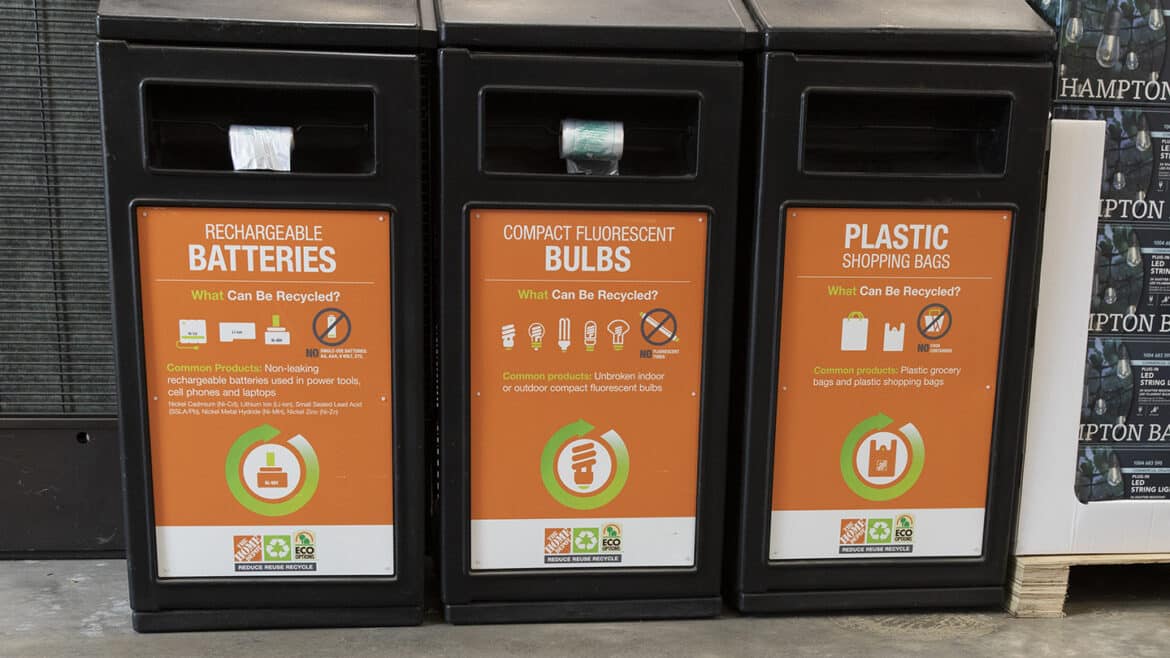E-bikes are mostly powered by three types of batteries: Lithium ion, lithium polymer and lead acid. One notable exception is hydrogen powered e-bikes (click here for our in-depth article). Lithium ion is by far the most common battery type due to its high power capacity, but these batteries can lose up to 10% of that capacity every year and will eventually need to be replaced. Any rechargeable batteries such as a lithium ion battery should not be tossed in the trash or recycling. Below we’ll walk you through how you should properly dispose of your unusable e-bike batteries.
How to know when to recycle your battery
Lithium ion batteries have a life of about 2 to 5 years, or 500 to 1,000 charging cycles. There are a couple of signs that you can look for which indicate that it’s time to switch out your battery. If the battery is:
- Becoming noticeably less powerful
- Is inconsistent with power delivery
- Takes a longer time to charge
- Loses its charge very quickly
It could be time for a battery replacement.
How to Recycle E-bike Batteries
There are two websites that make it easy to identify a battery recycling center near you: Earth911’s Locator and Call2Recycle.
Call2Recycle sponsors the Hungry For Batteries Recycling Program. If your e-bike manufacturer participates in this program, it is free to drop off your battery for recycling at any of the recycling drop off locations. You can check here if your bike brand is a part of this program.

If there is not a recycling center near you, or your bike brand does not participate in the program, Call2Recycle has a mail in option on their website for a fee. You can also contact ebikeprogram@call2recycle.org to learn more about your recycling options.
Home Depot accepts rechargeable batteries under 11 pounds and 300 watt hours for free. Best Buy, Lowes, Office Depot generally say that they accept rechargeable batteries, but do not have any information on their websites about restrictions on size or wattage.
If your battery is faulty, be sure to inform the drop-off location about its condition.
Why Recycling is important
Recycling batteries is a safety matter. Old and defective batteries can catch fire due to the battery fluid and voltage causing a short circuit. This applies to any type of lithium ion battery, whether in an E-bike, a Tesla, scooter or even consumer electronics. The metals in thesebatteries can be harmful to humans and wildlife/the environment if they leach into groundwater or soil. Many states expressly forbid rechargeable batteries from entering their landfills.
When recycled, 96% of battery components can be given new life. Through crushing and burning the batteries, the metals can be extracted for use in new batteries or other products. Nickel, cobalt, and copper are becoming increasingly rare because the main source of these materials is the conflict-ridden Congo, and so recycling existing batteries reduces demand for new metals.
Lithium is an infinitely recyclable material and is considered very important in the transition away from fossil fuels. Currently, it is cheaper to extract new lithium from brine mining than it is to recycle it, but great efforts are being made to make the recycling process cheaper.

How to make your batteries last longer
Here are a couple tips to make your next battery last longer:
- When you first get the battery, charge it fully before use.
- Keep your battery in a location that stays between 40 and 70 degrees Fahrenheit (4-21 degrees Celsius).
- Avoid charging it to full capacity if you don’t plan on riding it immediately.
E-Bike Comparison Tool
Use our Freshly Charged E-bike Comparison Tool to evaluate more than 450 E-bikes. Compare and organize bikes by factors such as price, pedal-assisted speed, battery size, weight, tire size, and more!







